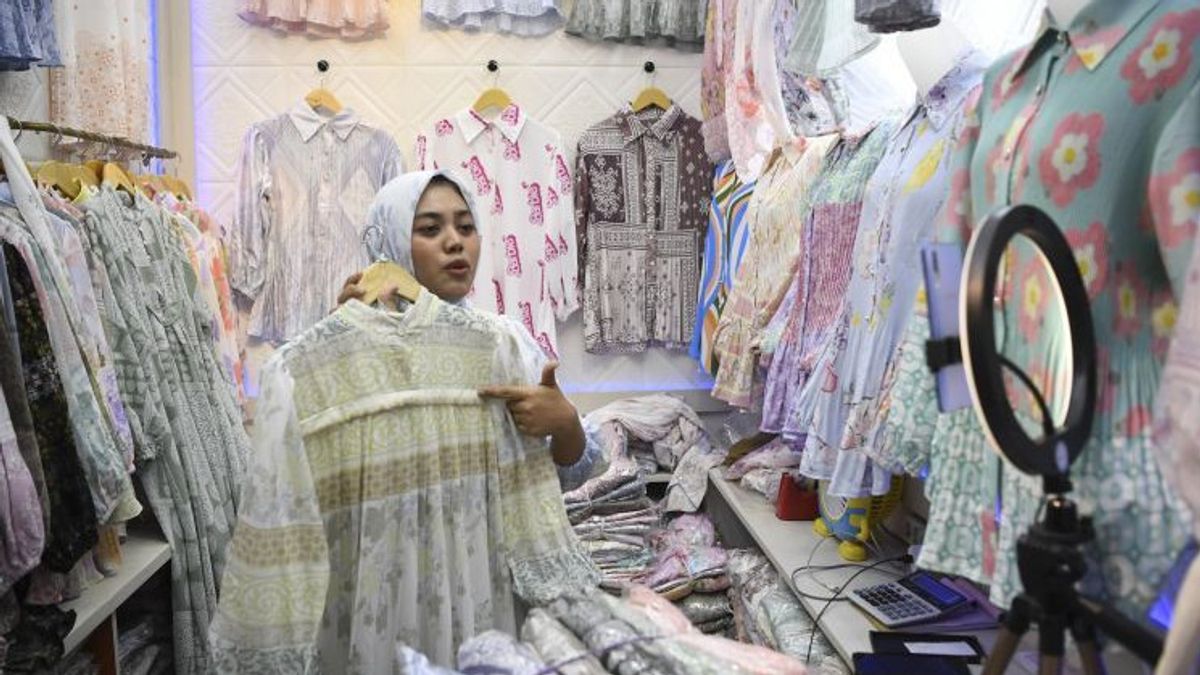JAKARTA - Special Staff to the Minister of Cooperatives and SMEs (Menkop UKM) for Creative Economy Empowerment, Fiki Satari said that platforms that run the social media business with e-commerce simultaneously (social commerce) should be banned because they can monopolize the market.
"Monopoly occurs if there is a platform that has the ability to control the market, determine unfair prices, different treatments, and determine discriminatory prices based on the data it has," said Fiki in an official statement in Jakarta, quoted from Antara, Monday 2 October.
The monopoly of the market traffic flow, he continued, is carried out without being realized by the user so that it can be directed to buy certain products without realizing it.
The second reason a platform is prohibited from running a social media business with e-commerce is that it can manipulate algorithms. He explained that platforms that have social media and e-commerce simultaneously can easily encourage certain foreign products to appear continuously on users' social media and at the same time make it difficult for local products to appear on social media.
"The manipulation of this algorithm allows the platform to benefit one product and at the same time discriminate against other products," he said.
Third, the platform can take advantage of traffic. Social media has a very large traffic and can now be used as navigation or trigger in buying on e-commerce. Fiki emphasized that the purchase trigger should not be captured by e-commerce which is on a single platform with social media. If that happens, then there will be no equal playing field in the digital industry in Indonesia.
The fourth reason is data protection. If you reflect on Law Number 27 of 2022 concerning Personal Data Protection, personal data processing is carried out according to its objectives. Because social media aims for entertainment, the data obtained from there is not for trading.
"User demographic data and aggregate purchases are very likely to be duplicated as the basis for making their own products or affiliated by platforms that run businesses simultaneously," he said.
SEE ALSO:
Similarly, the Executive Director of the Center of Economic and Law Studies (Celios) Bhima Yudhistira believes that a platform is naturally prohibited from running the social media and e-commerce business simultaneously. If not regulated, it has the potential to bring unhealthy trade competition.
"If abroad it is separated, so social media and e-commerce are separated or not," he said.
According to Bhima, separation is needed, one of which is to maintain data security because data misuse will be more difficult if it is divided into two different platforms. In addition, the supervision carried out can also be more optimal because it does not overlap.
A platform can no longer use its social media algorithm for selling. At least social media algorithms are not directed for the purpose of selling goods in e-commerce, "said Bhima.
The English, Chinese, Japanese, Arabic, and French versions are automatically generated by the AI. So there may still be inaccuracies in translating, please always see Indonesian as our main language. (system supported by DigitalSiber.id)
















